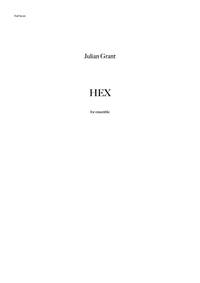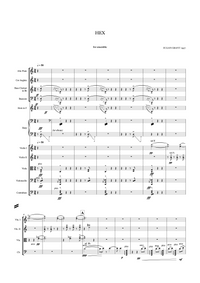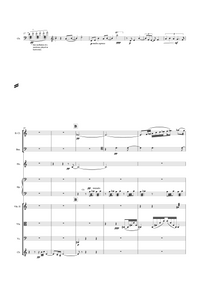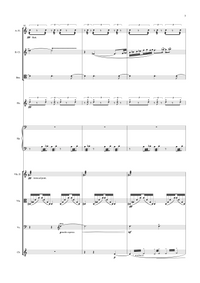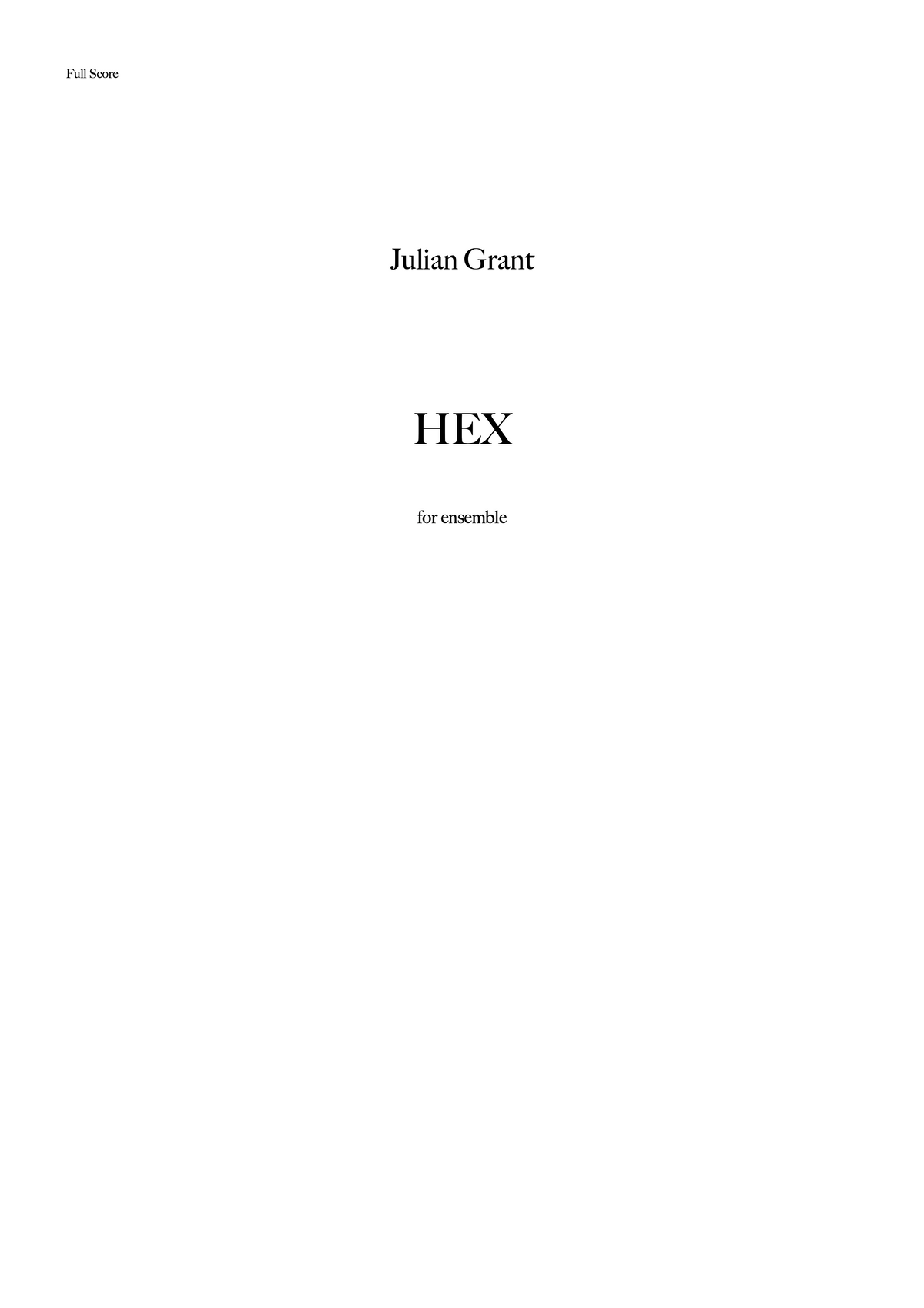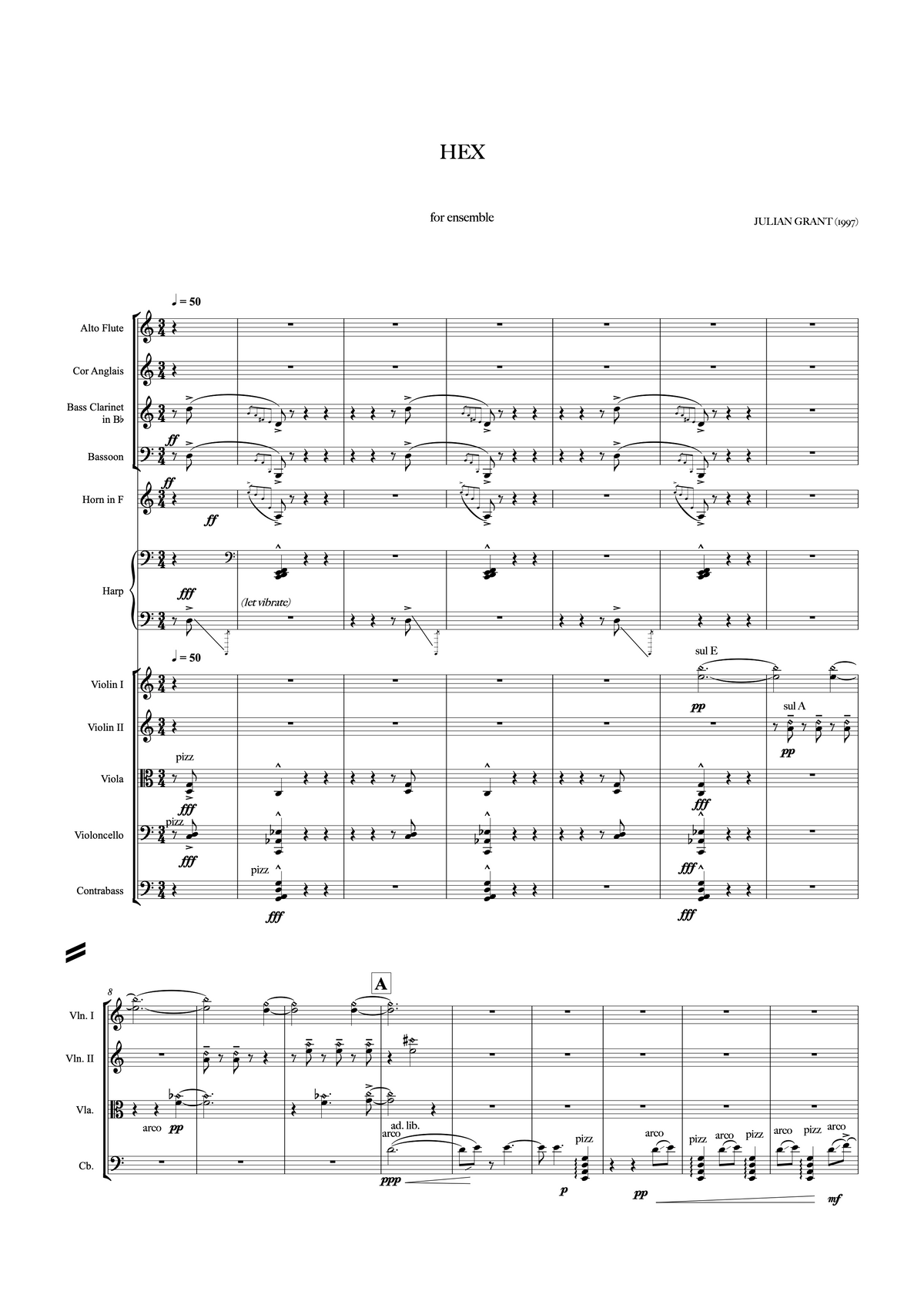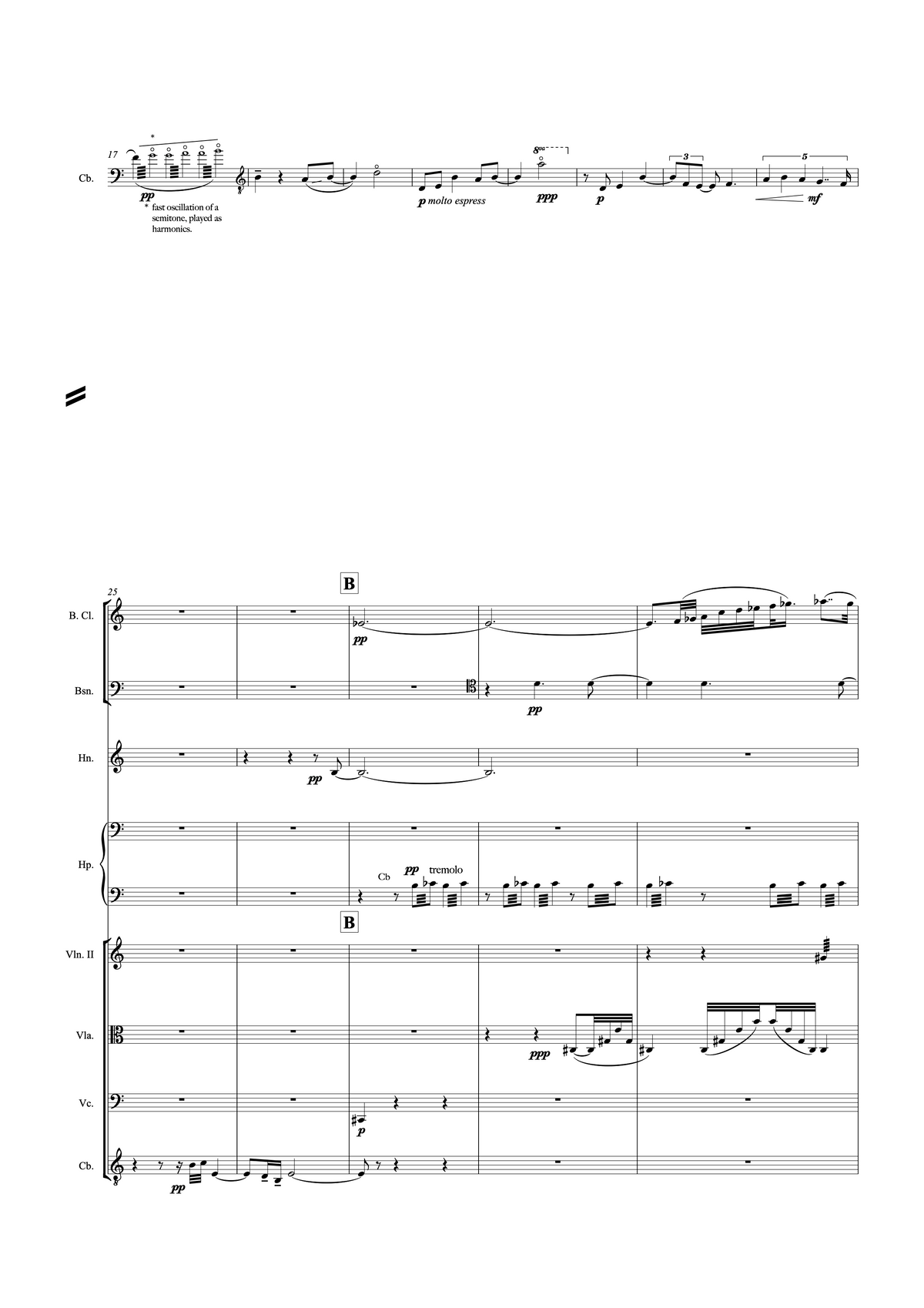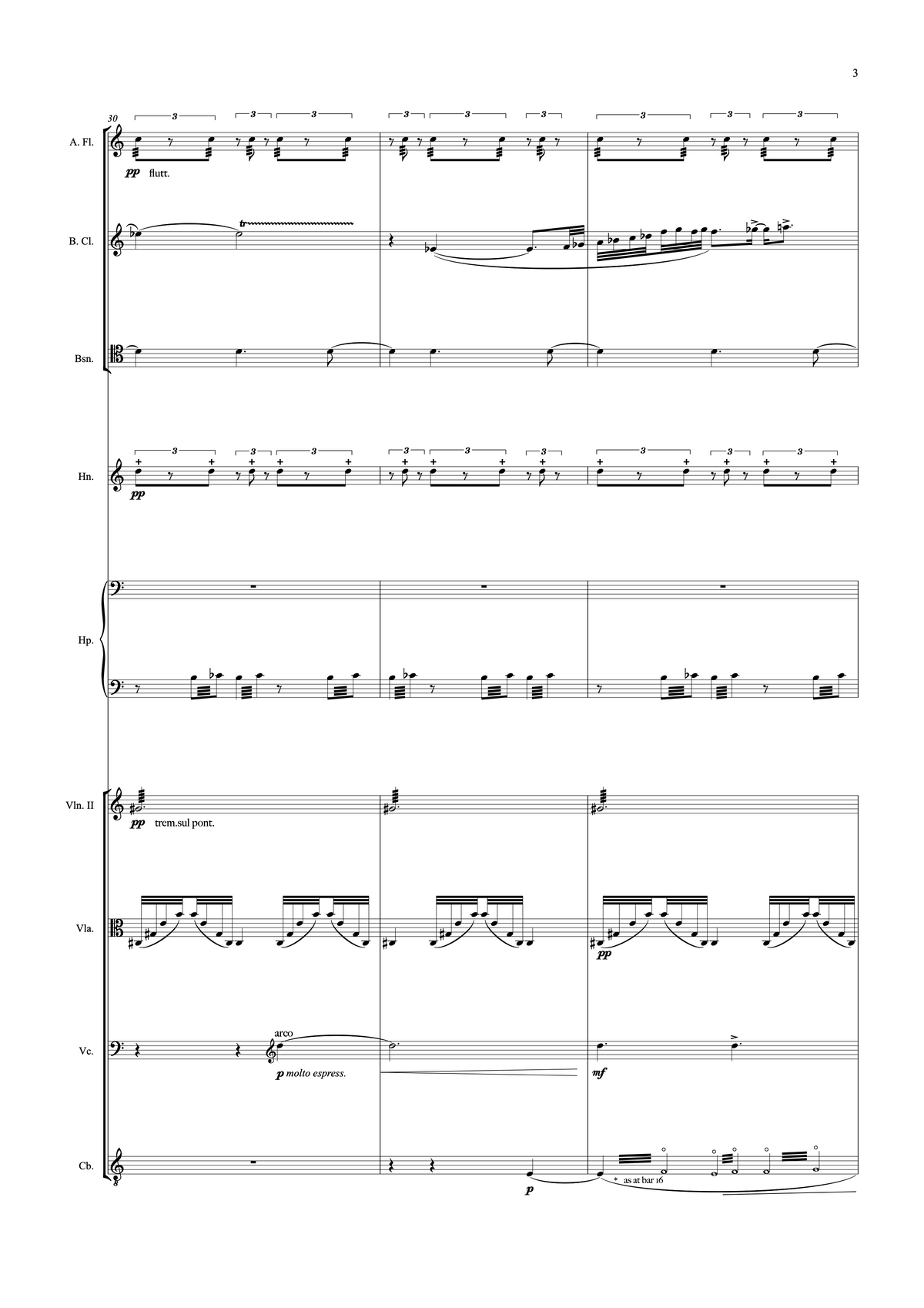Hex – Julian Grant
- Regular
- $49.99
- Sale
- $49.99
- Regular
- Unit Price
- per
Composer: Julian Grant
Instrumentation: alto flute in G (doubling piccolo), oboe (doubling cor anglais), clarinet in Bb (doubling bass clarinet in Bb), bassoon, horn in F, harp, violin 1, violin 2, viola, violoncello, contrabass
Duration: Approx. 11 minutes
Date Written: 1997
Additional information: The catalyst for this piece came from an unlikely source: a Central Asian rock concert. I had been lured there, like a virgin, intrigued by the promise of hearing 'The Madonna of Uzbekistan" . As it happened, she was eclipsed by another act on the bill, a group from Yakutsk, in Siberia. Their lead singer was a shaman, who apparently revived old songs and spells that had been largely stamped out by the Soviet regime. Her vocal style was intriguing, a declamatory and obsessive meandering on a few cracked notes, coloured by the local technique of "Kalykhan" , a sort of fluttery yodel. But it was her presence that was mesmerizing. She was large, with waist length raven tresses, and her imprecating, yowling, baying and pleading cast quite a chill over an audience who I imagined had thought themselves in for a frivolous time. I sat well back in my seat, torn with conflicting emotions as the antics were sometimes risible, sometimes disturbing, wondering if her song was protecting me from evil spirits or conj uring them up. I found myself intrigued by the idea of a song as a charm, or spell, and two contrasting examples came to mind: Orpheus wooing Charon to cross the Styx, particularly as realized by Monteverdi, and a Georgian opera I had happened upon, "Abesalom and Eteri" by Zakhary Paliashvili, in which a song causes the heroine to age prematurely and die. This piece does homage to my Shaman-muse; a double bass evokes her song, and an oscillating figure suggests the "Kalykhan" , but my hex is cast far and wide.

